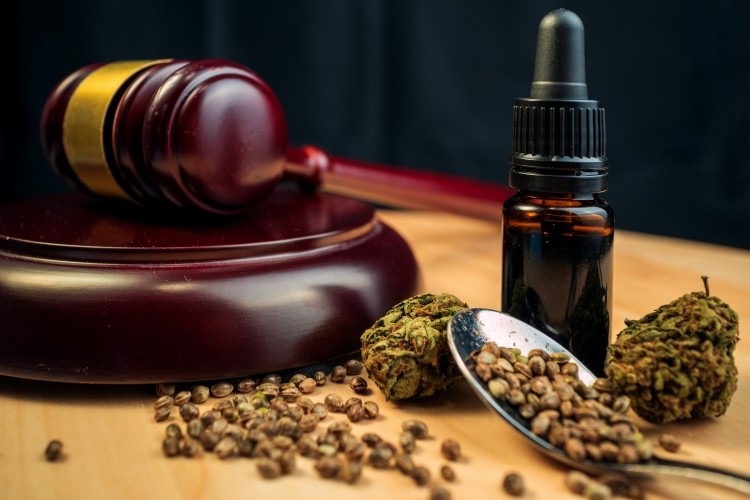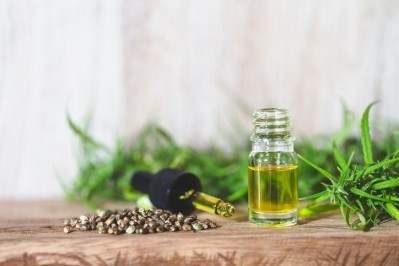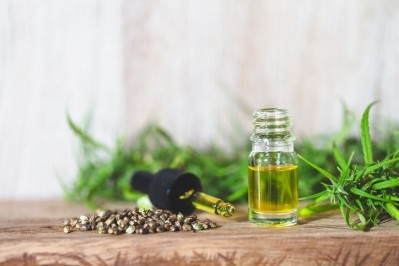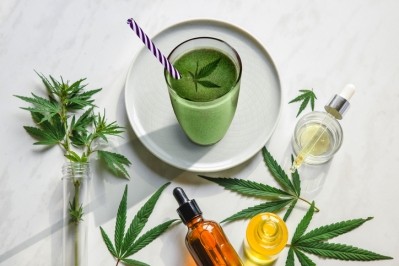Misguided CBD brands in last minute novel foods panic, ACI warns

The Food Standards Agency UK (FSA) has given CBD companies a deadline of 31st March 2021 to have a validated Novel Food License application submitted and many finished product brands may think they have done all they need to do.
But Shomi Malik, external affairs director at the ACI (Association for the Cannabinoid Industry), says there are some common misconceptions around what must be done to gain validation.
“This has been a minefield since the beginning with a lot of ‘he said she said’. A lot of B2B and B2C companies are being told that only the suppliers need to clear the ingredients, and that the companies just need to give their supplier’s stability data and nothing else. We also know of suppliers telling companies they don’t need to be on the supplier’s application.
“We’re receiving at least 10 enquiries like this every week from companies who have been given this advice and are starting to panic as they get closer to the deadline.
“If you look at ACNFP’s (FSA’s Advisory Committee on Novel Foods and Processes) guidelines it does say you need finished product information on your novel foods application.”
A spokesperson for FSA also told NutraIngredients: “We encourage the CBD industry to submit combined applications wherever possible to minimise delays to the authorisation process. However, primary producers are not obliged to include linked products or companies in their application. Secondary producers (i.e. businesses sourcing isolates from primary producers and making their own products) should include data from the primary company in their application.”
The ACI has been advising companies who are buying their materials from another supplier to ensure their company name and commercial product name are on the supplier’s application. Furthermore, they advise companies to request an LOA (letter of authorisation indicating the buyer of raw materials can link their application to the raw material manufacturers) from their raw material supplier if an independent application is required for the finished formulations.
“Otherwise, what’s to stop a product being validated and then the brand changing their supplier to a non-validated supplier after 1 April 2021?” Malik adds.
To ensure the market remains law abiding, Malik suggests it should be a responsibility of the manufacturers to notify the FSA when they stop supplying a specific product or brand.
“This way the system ensures that there is no exploitation of the hard work, time and money invested in gaining novel foods validation and eventually, authorisation status. If the enforcement agency needs to verify supply chain then commercial and brand names have to be on the supplier’s dossier.”
Collaboration validation
Companies who have generated the toxicity data from scratch will have found this time consuming and expensive. It involves doing an oral toxicity study on rodents which can cost upwards of £300,000-500,000.
To solve this issue, the ACI partnered with Advanced Development and Safety Laboratory (ADSL) to create a consortium which allows members to share the cost of this process. Companies provide ACI with samples of their products and ACI provide the safety information mandated by the novel foods application process.
“We are satisfied that any company that does not have such original derived data will not have their novel foods dossier validated by the FSA," Malik warns.
"Or they will at least need to show evidence of a robust plan showing which contract-research organisations they will use, timelines, etc.”
Malik explains why he is so supportive of a rigorous regulatory framework for this market.
“If brands want to come into this industry at the beginning then there is huge opportunity for them but they have to play by the rules - don’t push back against regulations.
“Imagine the opportunities that come with the opening up of this market - when retailers can engage, when there’s more research and more innovation - what an opportunity it will be.
“We are on the cusp of the first legal regulated OTC cannabis competent market and this is the first step towards normalising and de-stigmatising the ingredient. It is a hugely positive step and well worth the effort.”
Suppliers staying safe
EcoGen is a US-based global raw material supplier and ACI member which has worked with its customers to ensure they won’t be met with any nasty surprises.
Garrett Bain, president of the firm, says: “Our ingredients are active ingredients that go into a range of processes and formulations which can interfere with the CBD and potentially could lead to side effects.
“Therefore we create two novel food dossiers – one to support our ingredients and a second with all the finished products which have also gone through stability and toxicity testing via the ACI consortium.
“We’ve ensured to do this firstly, most urgently, for those brands with products in the UK which want to stay on the market after the FSA’s March 31st deadline.
“We are also working with those who were not on the market before FSA’s deadline announcement on Feb 13th 2020 and would like to enter the market after their application has been validated – which we imagine will take 12-18 months from submission.”
Many months and a quarter of a million dollars later, the company certainly hasn’t finished this work yet as it continues to work with companies looking to join the market.
Bain notes that it’s not too late for brands to change suppliers if they need to.
“It’s getting down to the wire now if brands want to enter the UK they need to work with a manufacturer who will help them to get their products into stability and toxicity testing and pull together all the data required.”
Brands banging the drum
Meanwhile, Pureis CBD, has become the first (synthetic) CBD company to receive a Validated Novel Food Application from European Food Safety Authority (EFSA) and the Food Standards Agency UK (FSA).
Over the course of 18 months and an excess of £1.5 million investment, Pureis CBD had already completed a full suite of studies necessary to meet and satisfy the EFSA and FSA UK when CBD was classed as a ‘novel food’.
Commenting on the dual validation of their dossier, Founder of Pureis Ultra Pure CBD, Chanelle Lady McCoy said: “Novel Food Approval is a positive step in the right direction for breaking the stigma around CBD in the market. Only through industry taking the lead can this stigma be addressed. We are proud to be setting a benchmark for compliance.”
Pureis CBD has 0% THC and mimics the DNA of the plant; with no toxins, pollutants, other cannabinoids, terpenes, heavy metals, pesticides or insecticides.
Caroline Glynn, Co-Founder of Pureis Ultra Pure CBD adds: “While having clinical studies in place is necessary for Novel Food, we don’t intend to stop there. We will persist to generate more clinical data on the wonderful properties of CBD. With this in mind, we are continuing to invest in further efficacy studies in a range of clinical indications.”















